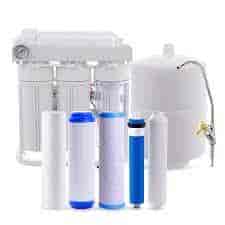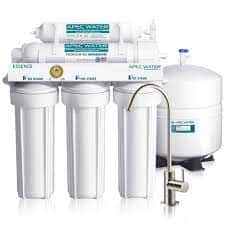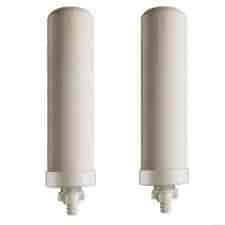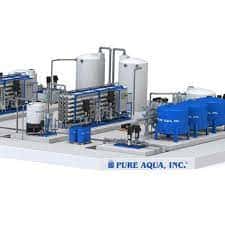Water Purification Systems
Buy on whatsappDescription
Types of Water Purification Systems
There are several types of water purification systems available today. Each system employs different methods to remove impurities and ensure the safety of drinking water. Let’s explore some popular types:
1. Reverse Osmosis (RO) Systems
Reverse osmosis systems are widely used for water purification. These systems use a semipermeable membrane to remove contaminants, bacteria, and dissolved solids from the water. RO systems are effective in eliminating various pollutants and improving the taste and odor of water.
2. Activated Carbon Filters
Activated carbon filters are commonly found in water purification systems. They use activated carbon to absorb impurities and chemicals present in the water, including chlorine, pesticides, and volatile organic compounds (VOCs). These filters also help in enhancing the water’s taste and reducing odor.
3. Ultraviolet (UV) Sterilization
UV sterilization systems utilize ultraviolet light to kill bacteria, viruses, and other microorganisms present in the water. This method is highly effective in disinfecting water and eliminating harmful pathogens. UV sterilization does not alter the water’s taste or odor and does not require the use of chemicals.
4. Distillation Systems
Distillation systems work by heating water to create steam, which is then condensed back into liquid form. This process removes impurities and contaminants, as most contaminants do not vaporize. Distillation systems are capable of eliminating heavy metals, minerals, and dissolved solids from water.
5. Ion Exchange Systems
Ion exchange systems use a resin bed to exchange ions in the water. These systems are effective in removing hardness-causing minerals like calcium and magnesium. Ion exchange systems improve the water’s taste and also help prevent scaling in appliances and pipes.
Benefits of Water Purification Systems
Investing in a water purification system offers numerous benefits for both individuals and communities. Here are some key advantages:
- Access to Clean Drinking Water: Water purification systems ensure that the water you consume is free from contaminants and safe for drinking, protecting you from waterborne diseases.
- Improved Taste and Odor: Purified water often tastes and smells better than untreated water, making it more enjoyable to drink and use in cooking.
- Cost Savings: Instead of relying on bottled water or purchasing expensive filtration pitchers, having a water purification system at home can lead to long-term cost savings.
- Environmental Sustainability: Using a water purification system reduces the reliance on single-use plastic bottles, contributing to a more sustainable environment.
- Convenience and Accessibility: Having a water purification system installed provides a constant supply of clean water, eliminating the need for frequent trips to the store for bottled water.
Conclusion
Water purification systems play a vital role in ensuring access to clean and safe drinking water. With various types of systems available, it is important to choose one that best suits your needs and addresses specific water quality concerns. By investing in a water purification system, you can enjoy the benefits of clean water, improved taste, and long-term cost savings while contributing to a healthier environment.
Remember, the quality of the water you consume directly impacts your health and well-being, so consider installing a water purification system for a reliable source of clean drinking water.
Note: The images used in this article are for illustrative purposes only.





